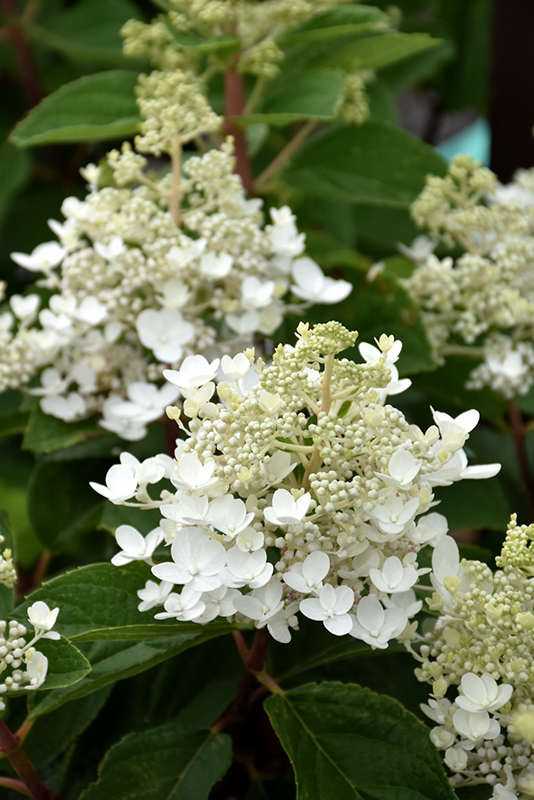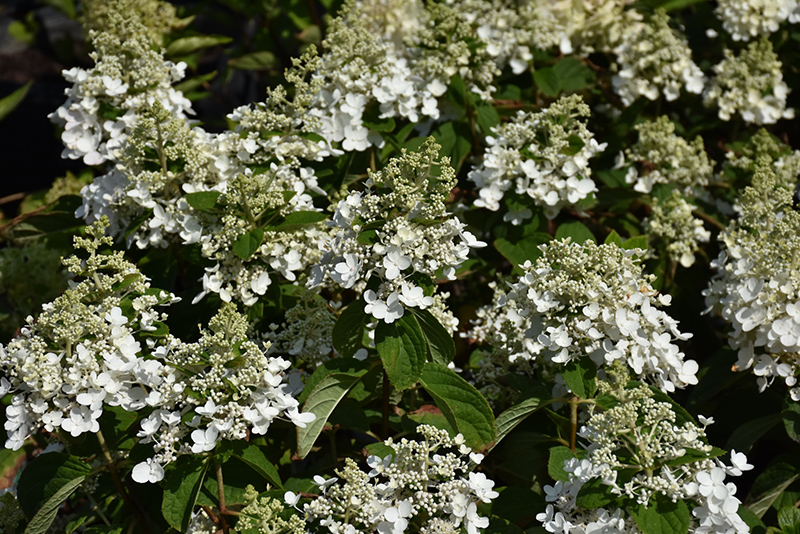Baby Lace Hydrangea
Hydrangea paniculata 'PIIHP-I'
Height: 4 feet
Spread: 4 feet
Sunlight:
![]()
![]()
Hardiness Zone: 4a
Description:
An attractive dwarf variety, valued for its cone-shaped panicles of elegant white flowers that stand out against the dark green foliage in mid-summer; great as an accent or container plant; thrives in bright, sunny areas; mildew resistant
Ornamental Features
Baby Lace Hydrangea features bold conical white flowers with shell pink overtones at the ends of the branches from mid summer to early fall. The flowers are excellent for cutting. It has dark green deciduous foliage. The pointy leaves do not develop any appreciable fall color.
Landscape Attributes
Baby Lace Hydrangea is a multi-stemmed deciduous shrub with a more or less rounded form. Its relatively coarse texture can be used to stand it apart from other landscape plants with finer foliage.
This shrub will require occasional maintenance and upkeep, and is best pruned in late winter once the threat of extreme cold has passed. It has no significant negative characteristics.
Baby Lace Hydrangea is recommended for the following landscape applications;
- Accent
- Mass Planting
- General Garden Use
- Container Planting
Planting & Growing
Baby Lace Hydrangea will grow to be about 4 feet tall at maturity, with a spread of 4 feet. It tends to be a little leggy, with a typical clearance of 1 foot from the ground. It grows at a medium rate, and under ideal conditions can be expected to live for 40 years or more.
This shrub does best in full sun to partial shade. It prefers to grow in average to moist conditions, and shouldn't be allowed to dry out. It is not particular as to soil type or pH. It is highly tolerant of urban pollution and will even thrive in inner city environments. Consider applying a thick mulch around the root zone in winter to protect it in exposed locations or colder microclimates. This is a selected variety of a species not originally from North America.
Baby Lace Hydrangea makes a fine choice for the outdoor landscape, but it is also well-suited for use in outdoor pots and containers. Because of its height, it is often used as a 'thriller' in the 'spiller-thriller-filler' container combination; plant it near the center of the pot, surrounded by smaller plants and those that spill over the edges. It is even sizeable enough that it can be grown alone in a suitable container. Note that when grown in a container, it may not perform exactly as indicated on the tag - this is to be expected. Also note that when growing plants in outdoor containers and baskets, they may require more frequent waterings than they would in the yard or garden. Be aware that in our climate, most plants cannot be expected to survive the winter if left in containers outdoors, and this plant is no exception. Contact our experts for more information on how to protect it over the winter months.



